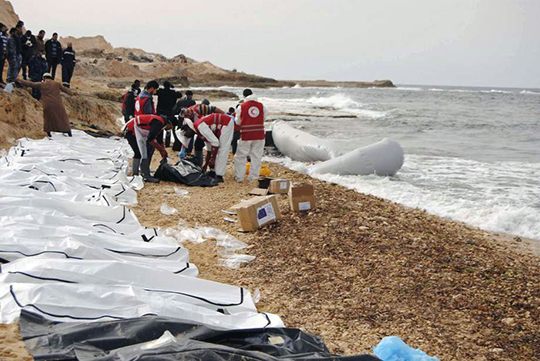Tripoli, Feb 21: The bodies of 74 migrants who drowned in the Mediterranean trying to reach Europe have washed up on a beach west of the Libyan capital, the Red Crescent said today.

Residents of the village of Harcha, outside Zawiya, 45 kilometres from Tripoli, alerted the emergency services after finding a wrecked boat on the beach with bodies inside, the Red Crescent said.
More were discovered elsewhere on the beach and still more were feared to be in the sea.
Photographs posted by the Zawiya Red Crescent on Facebook showed a long row of black and white body bags lined up near the water's edge.
"We don't have an appropriate vehicle to transport the bodies or a cemetery for unidentified bodies to bury them in," the group said.
"Some bodies are still on the beach and others that we can't reach are still floating in the water."
People smugglers have taken advantage of the chaos gripping Libya since the 2011 revolution to greatly boost their lucrative trade.
Most departures take place from the west of Libya, usually heading for Italy 300 kilometres away across the Mediterranean.
Europeans are considering measures aimed at blocking the arrival of thousands of migrants, alarming NGOs which fear that those stranded in Libya may suffer mistreatment.
In the absence of an army or a regular police force in Libya, several militias act as coastguards but are often accused themselves of complicity or even involvement in the people-smuggling business.





Comments
Add new comment